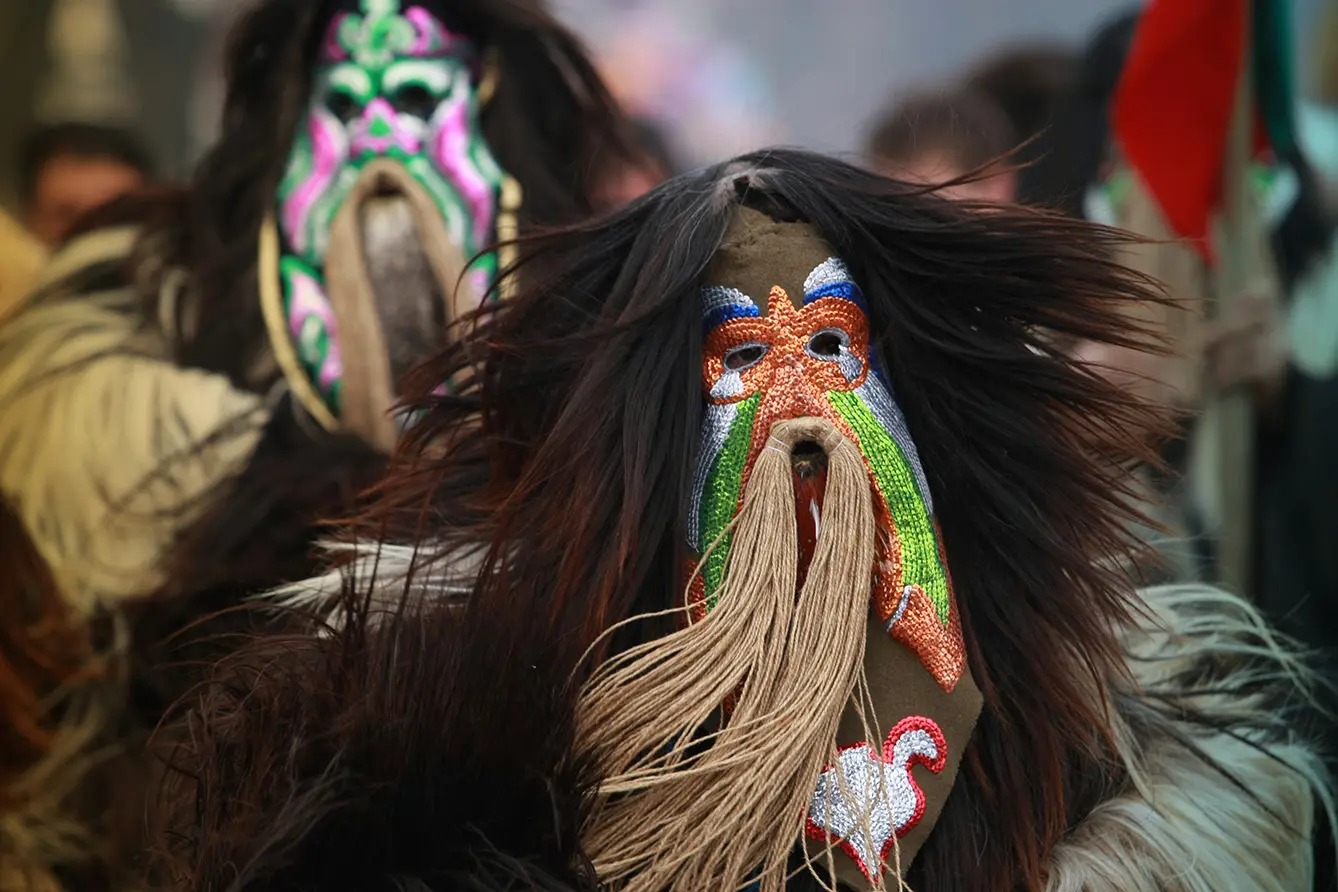This tradition – observed especially in the south and northeast of Bulgaria – has been around for some 6,000 years. The Kukeri, lavishly dressed men, go from door to door, not only to keep the evil spirits away with their sticks but also to wish their hosts a healthy and fruitful New Year. According to ethnographers, the tradition is linked to the celebration of Dionysus, the ancient Greek god of wine and merriment. The word “Kuker” itself is also believed to be of Thracian origin and means tall, masked people. That would explain the tall hats, reaching a height of two meters.
Dancing with Kukeri
The dances performed by the Kukeri symbolize the end of winter and the rebirth of new life. The appearance of these scary visitors is scheduled in time for the start of the agricultural year, closer to the end of winter when the fields are plowed.
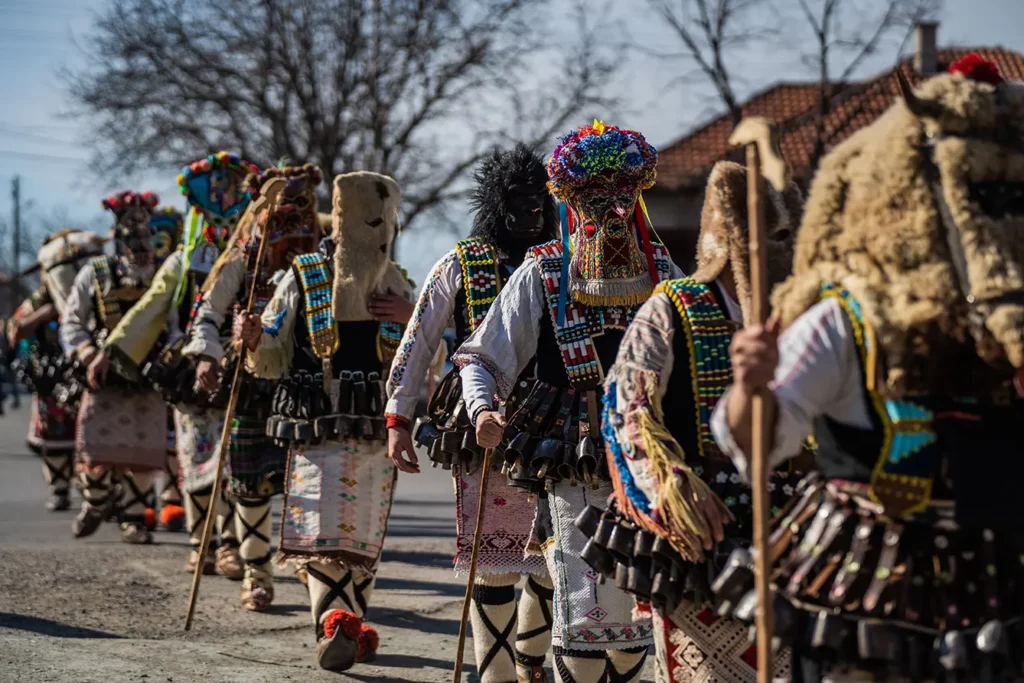
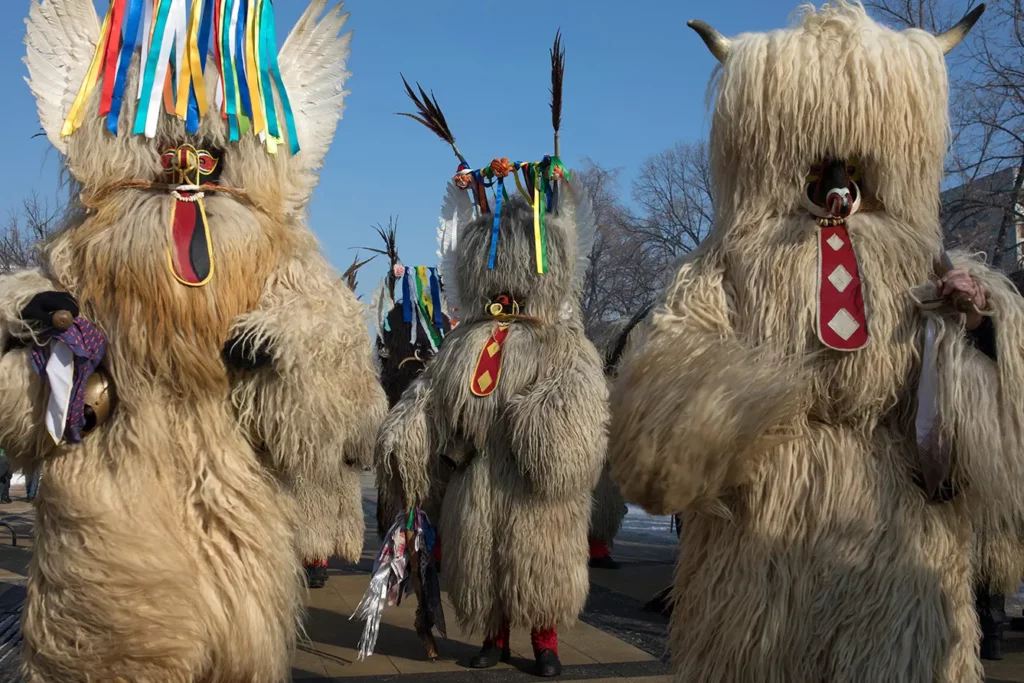
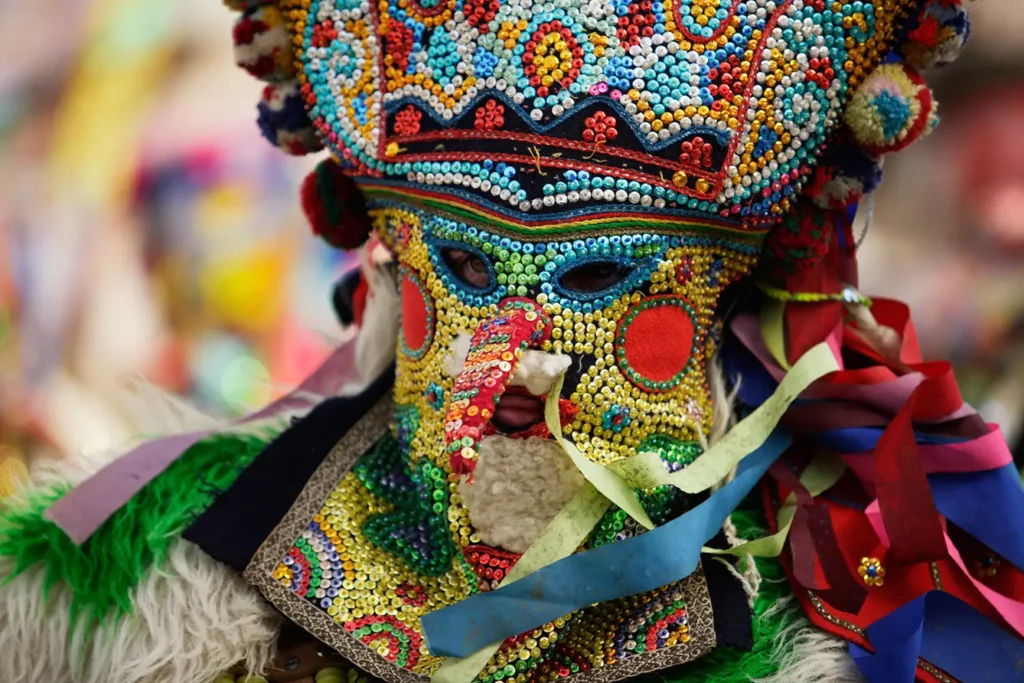
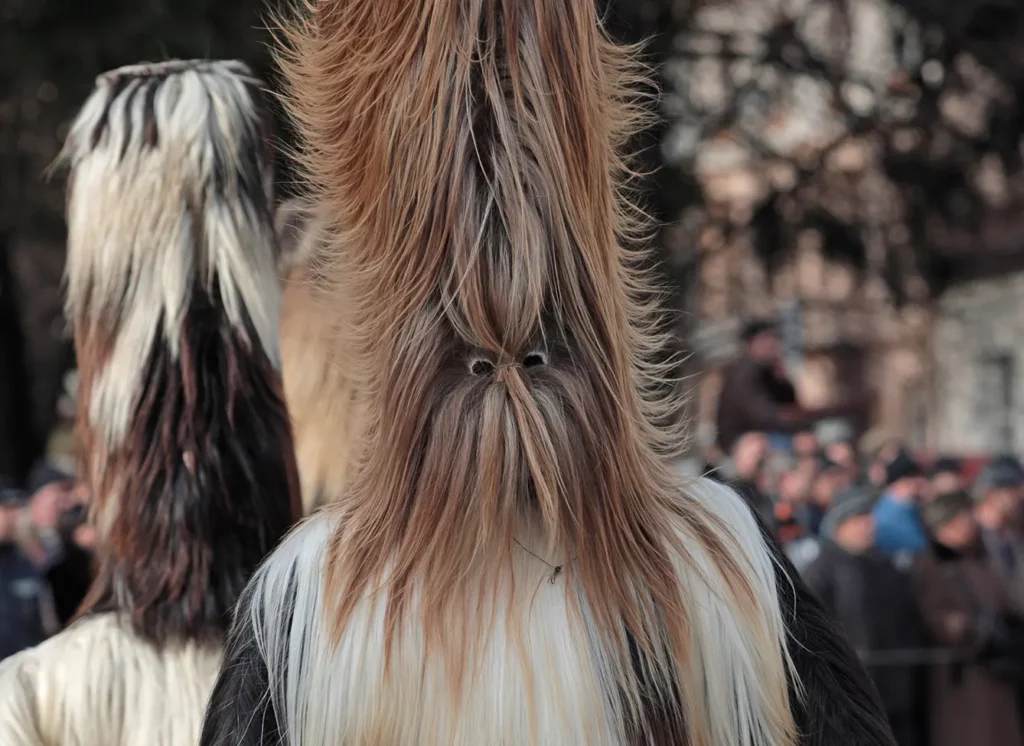
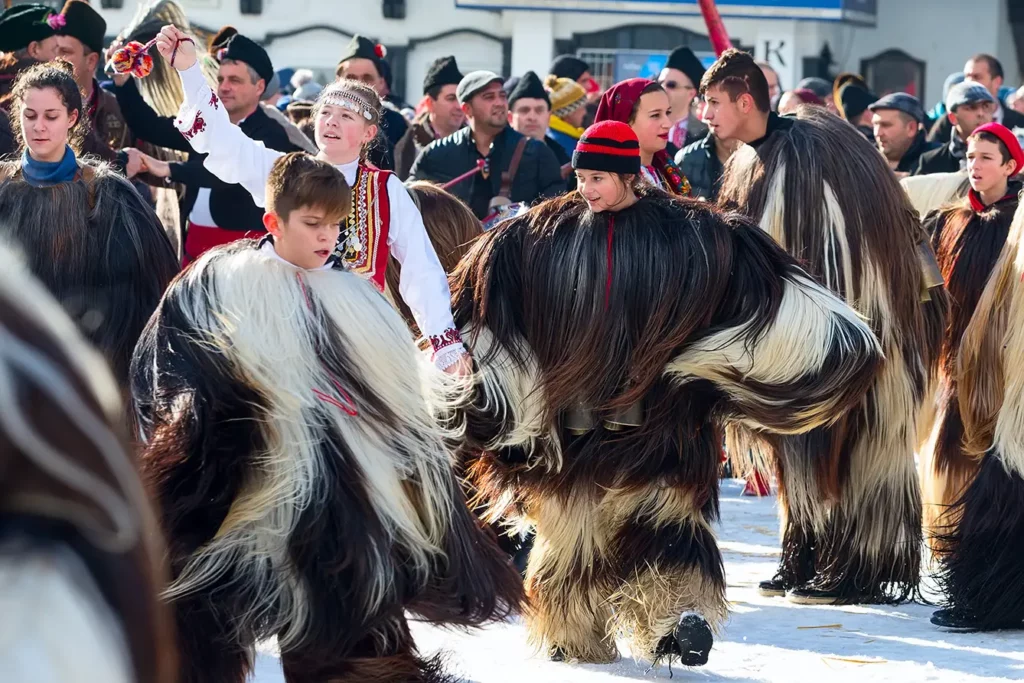
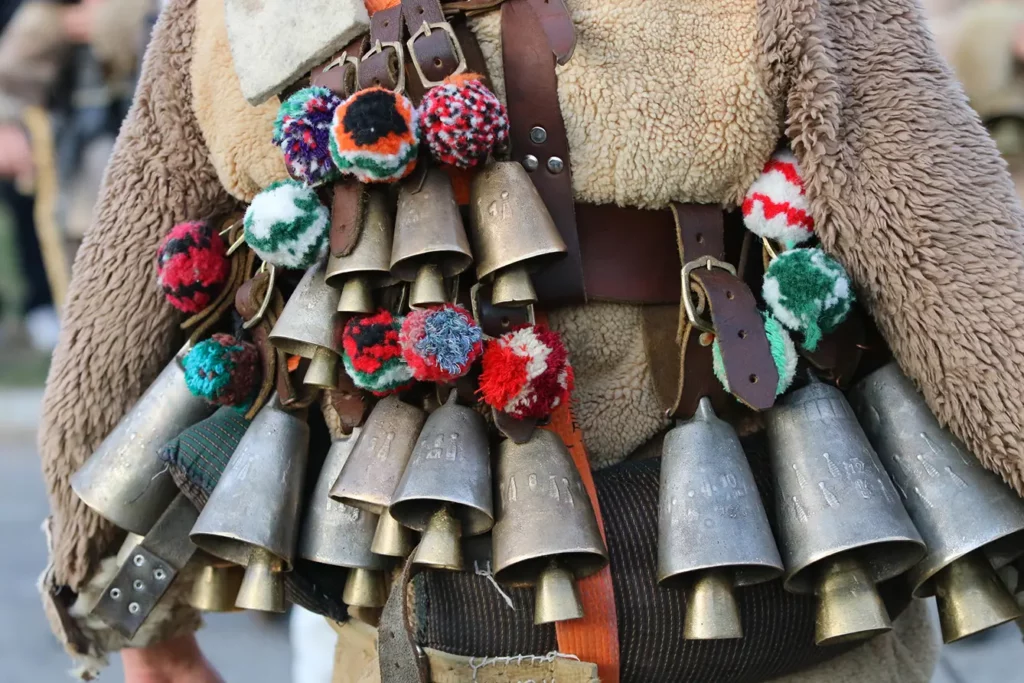
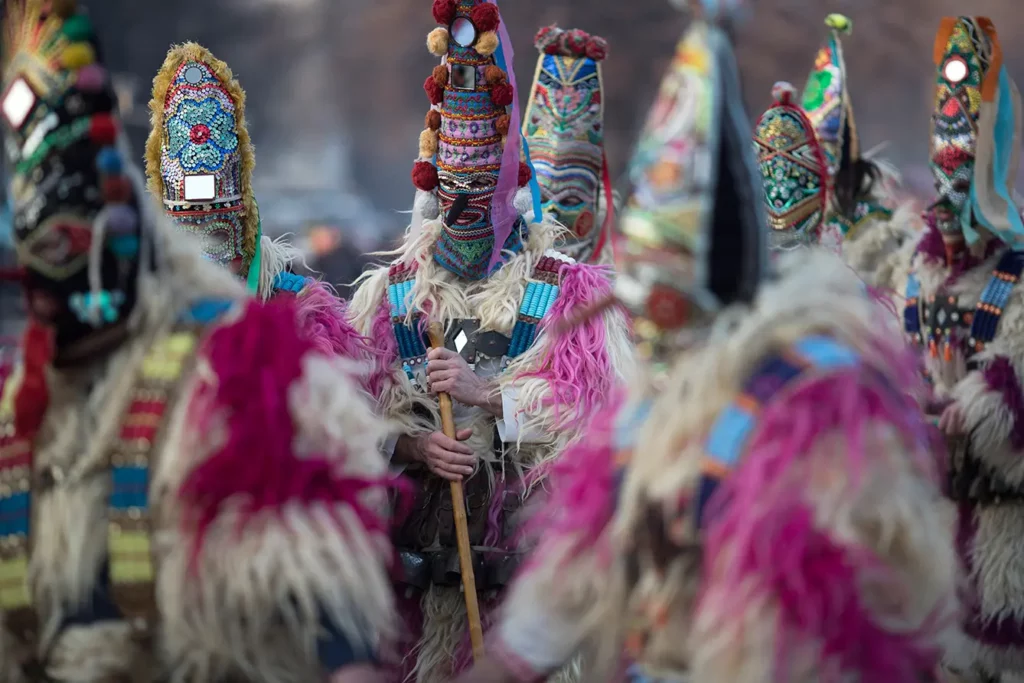
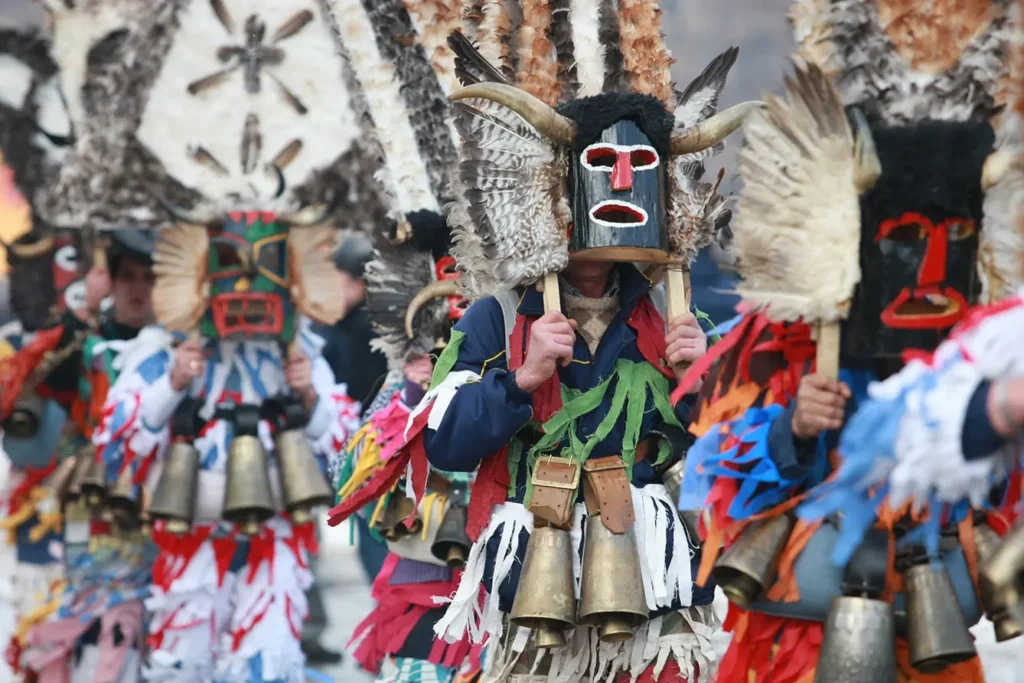
In recent years, the old rule stipulating that only men can participate has been broken, and now women are also donning special costumes made of goat or sheep skin and studded with bells of different sizes and shapes. On their heads, participants put masks resembling animals such as goats, rams, and oxen, which they decorate with horns, teeth, and bird feathers.
In Veselinovo, a village in northeastern Bulgaria, the local Kukeri smear their faces with soot. “For me, to be a Kuker is more than an honor. It’s how we spread our traditions,” Maria Trifonova, who has been at the helm of the “Black Kukeri” ensemble of Veselinovo since 1985, tells 3Seas Europe. “We have managed over the years to preserve the authenticity of our group,” she adds.
Blessing for fertility
Roles in the Kukeri ensemble are of huge importance. There’s the bride in a white gown, as well as characters such as a policeman, grandmother, doctor, priest, barber, and in some areas, a king, riding in a cart and throwing grain on the ground as a blessing for the fertility of the land. Once all members of the group are dressed, usually at the crack of dawn, the company heads to the center of the village, where they perform actions that symbolize plowing and sowing. After this ritual, the Kukeri pay locals a visit. The climax is a special dance to the accompaniment of a bagpipe or drum.
As impressive as the ancient ritual is, it is the masks and costumes which put the Kukeri performance among the most spectacular Bulgarian traditions. The group members either make them themselves or rely on tailoring workshops to do the job. But whichever option they choose, one thing is certain: it’s not going to be cheap. One costume can cost between EUR 5,000-7,500 EUR – and this price doesn’t even include the heavy bells attached to it, the cheapest of which starts at a price of EUR 1,000.
The masks the Kukeri wear are of equal importance. Colorful threads, pieces of cloth, and mirrors are glued onto the mask. Whatever it takes, as long as the mask comes out ugly and scary, a major requirement for the ritual. The most ancient masks are of a ram, goat, or bull, while some masks are two-faced, with one side benevolent and the other sinister. The message is that good and evil coexist in the world.
Good luck, evil spirits!
And then, there are the colors. The main color is red, a symbol of fertility and rebirth of nature, but also a color known for its ability to chase away evil forces. The other predominant color is white, a symbol of light and new beginnings.
As Bulgaria gets ready for the Kukeri festivities, countries in the region will be on the lookout, too, as the tradition has spread out to neighboring and close countries such as Romania, Greece, North Macedonia, Moldova, Croatia, and Slovenia. Performers wearing thick coats, masks, and chunky bells can even be seen in Italy and Spain. What unites all these places is the belief that these masked dancers are bearers of good luck, fertility, and prosperity.
And if a Kuker beats you with a stick, consider yourself lucky. This only means that the evil spirits will stay away from you. At least for a year.


